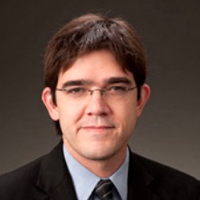Rascals case in brief
In the beginning, in 1989, more than 90 children at the Little Rascals Day Care Center in Edenton, North Carolina, accused a total of 20 adults with 429 instances of sexual abuse over a three-year period. It may have all begun with one parent’s complaint about punishment given her child.
Among the alleged perpetrators: the sheriff and mayor. But prosecutors would charge only Robin Byrum, Darlene Harris, Elizabeth “Betsy” Kelly, Robert “Bob” Kelly, Willard Scott Privott, Shelley Stone and Dawn Wilson – the Edenton 7.
Along with sodomy and beatings, allegations included a baby killed with a handgun, a child being hung upside down from a tree and being set on fire and countless other fantastic incidents involving spaceships, hot air balloons, pirate ships and trained sharks.
By the time prosecutors dropped the last charges in 1997, Little Rascals had become North Carolina’s longest and most costly criminal trial. Prosecutors kept defendants jailed in hopes at least one would turn against their supposed co-conspirators. Remarkably, none did. Another shameful record: Five defendants had to wait longer to face their accusers in court than anyone else in North Carolina history.
Between 1991 and 1997, Ofra Bikel produced three extraordinary episodes on the Little Rascals case for the PBS series “Frontline.” Although “Innocence Lost” did not deter prosecutors, it exposed their tactics and fostered nationwide skepticism and dismay.
With each passing year, the absurdity of the Little Rascals charges has become more obvious. But no admission of error has ever come from prosecutors, police, interviewers or parents. This site is devoted to the issues raised by this case.
On Facebook
Click for earlier Facebook posts archived on this site
Click to go to
Today’s random selection from the Little Rascals Day Care archives….
Click for earlier Facebook posts archived on this site
Click to go to
Today’s random selection from the Little Rascals Day Care archives….
This time, will NC Bar tell DAs to play fair?

cheshireparker.com
Brad Bannon
April 20, 2016
“‘If prosecutors have an ethical duty to avoid wrongful convictions, then they should have some sort of ethical duty to remedy wrongful convictions,’ said attorney Brad Bannon of the North Carolina Bar’s ethics committee.
“He wants North Carolina to adopt a rule recommended by the American Bar Association, requiring prosecutors to come forward if they find ‘new, credible and material evidence’ that an innocent person is serving time. Thirteen states have adopted the post-conviction rule. North Carolina isn’t among them.
“The State Bar rejected the rule several years ago but recently appointed a committee to reconsider….”
– From “Rule targets prosecutors who don’t reveal innocence evidence” by Martha Waggoner of the Associated Press (April 16)
Given prosecutors’ disproportionate influence on the state bar, to even “reconsider” the disclosure rule suggests the recent stream of unbecoming publicity hasn’t gone unnoticed.
![]()
‘Motive behind these sexual acts is never revealed….’

txstate.academia.edu
Joseph Laycock
Jan. 12, 2016
“There are strong similarities between the confessions taken from accused witches in early modern Europe, the testimony of Satanic ritual abuse taken by modern therapists, and accounts of alien abduction given under hypnosis.
“In each of these narratives, a subject describes horrible sexual transgressions performed on them at the hand of a mysterious other: the thorny penis of the Devil, the bizarre anal insertions of Satanists, and the mysterious probing of aliens.
“The motive behind these sexual acts is never revealed and the existence of the perpetrators is usually in doubt….”
– From “Carnal Knowledge: The Epistemology of Sexual Trauma in Witches’ Sabbaths, Satanic Ritual Abuse, and Alien Abduction Narratives” (abstract) by Joseph Laycock in Preternature: Critical and Historical Studies on the Preternatural (2012)
Did prosecutors and therapists even attempt to ascribe any cause or context to the “bizarre anal insertions” common to the day-care allegations? Candles, Magic Markers, burning flower stems?
Did they think such shocking behavior had appeared full blown out of nowhere? On the list of known sexual perversions exactly which box – or boxes! – would they check?
![]()
Faulty ‘mental tuning forks’ betrayed therapists
Aug. 23, 2013
“Developing a mental tuning fork for the credibility of a claim, gaining an instinct for when to trust and when to doubt a source – these are two critical components of becoming a confident and effective researcher.”
– From “The Devil in the Details: Media Representation of ‘Ritual Abuse’ and Evaluation of Sources” by Barbara Fister in Studies in Media & Information Literacy Education (May 2003
Although Fister’s observation addresses the challenge of fact-finding on the Internet, it applies just as well to the interviewing of child witnesses. The poorly prepared Little Rascals prosecution therapists – and social services investigators – surely had an overabundance of confidence in their “mental tuning forks” and their “instinct for when to trust and when to doubt.” By contrast, social scientists such as Ceci and Bruck proceed with caution, not credulity.
‘Too many therapists with too little expertise’
Sept. 11, 2013
“Why did the epidemic of day care hysteria happen just when and where it did? Why in 1982? Why in the United States?…. You can’t have a panic about day care centers unless you have day care centers. These had become a necessary fixture of American life as more mothers entered the work force, families traveled far distances to chase available jobs and there were fewer available grandmothers to help babysit. Undoubtedly parental guilt in turning over parental responsibility played a role.
“Among therapists, there was concern over previously not taking seriously enough the statements of kids who had actually experienced sexual abuse. There were also too many therapists with too little expertise who were able nonetheless to self-promote and gain authority as fake ‘experts.’ This sad episode is the clearest caution imaginable to any therapist feeling the impulse to jump onto a current or future fad bandwagon.”
– From “Saving Normal: An Insider’s Revolt Against Out-of-Control Psychiatric Diagnosis, DSM-5, Big Pharma, and the Medicalization of Ordinary Life” by Allen Frances (2013)
Despite Dr. Frances’s timidity in exposing the “complete bunk” of multiple personality disorder, his influence across psychiatry is undisputed. But will his words be sufficient to deter the next generation of overreaching therapists from jumping onto the “fad bandwagon”?











0 CommentsComment on Facebook